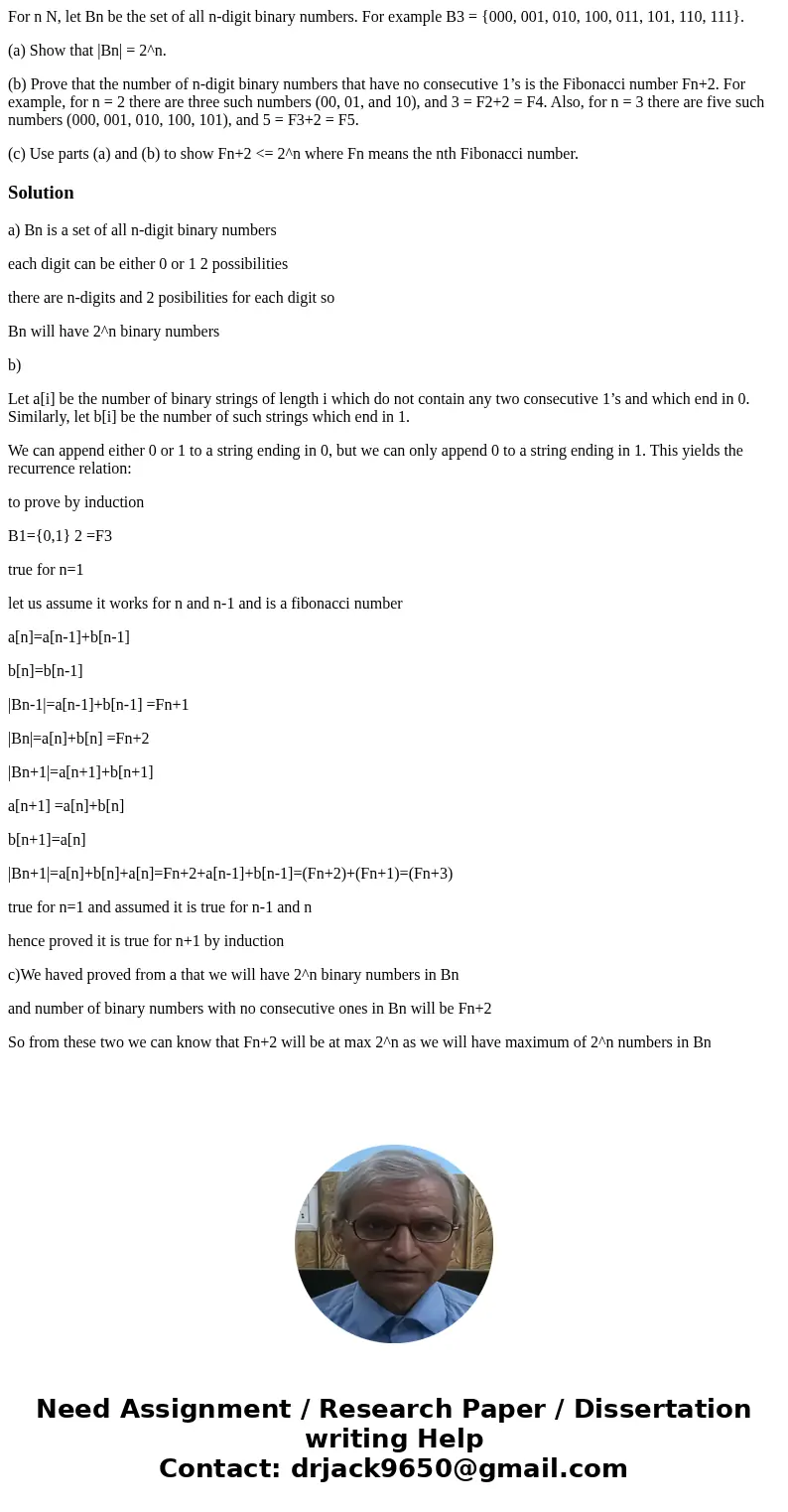For n N let Bn be the set of all ndigit binary numbers For e
For n N, let Bn be the set of all n-digit binary numbers. For example B3 = {000, 001, 010, 100, 011, 101, 110, 111}.
(a) Show that |Bn| = 2^n.
(b) Prove that the number of n-digit binary numbers that have no consecutive 1’s is the Fibonacci number Fn+2. For example, for n = 2 there are three such numbers (00, 01, and 10), and 3 = F2+2 = F4. Also, for n = 3 there are five such numbers (000, 001, 010, 100, 101), and 5 = F3+2 = F5.
(c) Use parts (a) and (b) to show Fn+2 <= 2^n where Fn means the nth Fibonacci number.
Solution
a) Bn is a set of all n-digit binary numbers
each digit can be either 0 or 1 2 possibilities
there are n-digits and 2 posibilities for each digit so
Bn will have 2^n binary numbers
b)
Let a[i] be the number of binary strings of length i which do not contain any two consecutive 1’s and which end in 0. Similarly, let b[i] be the number of such strings which end in 1.
We can append either 0 or 1 to a string ending in 0, but we can only append 0 to a string ending in 1. This yields the recurrence relation:
to prove by induction
B1={0,1} 2 =F3
true for n=1
let us assume it works for n and n-1 and is a fibonacci number
a[n]=a[n-1]+b[n-1]
b[n]=b[n-1]
|Bn-1|=a[n-1]+b[n-1] =Fn+1
|Bn|=a[n]+b[n] =Fn+2
|Bn+1|=a[n+1]+b[n+1]
a[n+1] =a[n]+b[n]
b[n+1]=a[n]
|Bn+1|=a[n]+b[n]+a[n]=Fn+2+a[n-1]+b[n-1]=(Fn+2)+(Fn+1)=(Fn+3)
true for n=1 and assumed it is true for n-1 and n
hence proved it is true for n+1 by induction
c)We haved proved from a that we will have 2^n binary numbers in Bn
and number of binary numbers with no consecutive ones in Bn will be Fn+2
So from these two we can know that Fn+2 will be at max 2^n as we will have maximum of 2^n numbers in Bn

 Homework Sourse
Homework Sourse